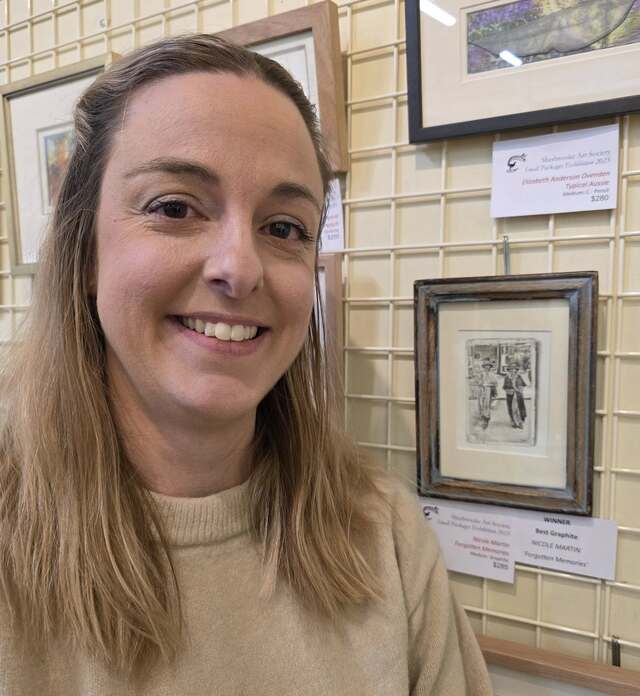Nationally it was Scam Awareness Week last week and online scams are one of the constant issues for daily internet users in online community groups in the Dandenong Ranges and Yarra Valley.
In recent weeks several social media posts have been claiming that small children are ‘missing’ in different areas, but reverse image searches have found the posts to be scams or fake accounts.
Everyone has a part to play in shutting down criminal scammers and by talking to each other, community can make sure no one is alone in the fight against scams.
From 26-30 August, Scams Awareness Week encourages all Australians to speak up, share and report scams to help others identify, avoid, report and recover from scams.
Sharing scam stories makes others in the community aware of the scams that are out there, and learn how they can avoid them.
Monash-Epworth Rehabilitation Research Centre clinical neuropsychologist and senior research fellow Dr Kate Gould said trust is essential in a functioning society but people also need to be alert for scammers who abuse that trust.
“Through the use of social engineering, scammers copy trusted brands’ websites or phone numbers, use bots to make fake reviews, and may spend time discussing common interests or difficulties,” she said
“Scammers also use emotional manipulation to exert pressure for a quick response.”
This has been the case with many of the Dandenong Ranges Facebook groups being subject to online spam images of small children that are lost and have been taken to the local police station, in one case a false image that claimed to be a lost ones remains was posted.
People who are duped by online scams may not talk about it and Dr Gould said they’re still learning about how to support someone to re-emerge from this manipulation and adjust to what’s happened.
“Those affected might experience feelings of shame, but it’s never their fault. They need to know that they are not alone and can reach out to people they trust, and/or mental health services who understand scams and can offer support. Connection and feeling understood is an antidote to shame,” she said.
South Australia’s UniSA’s Dr Braam Lowies, whose research focuses on financial capability issues in the aged population regarding financial, housing and investment decisions, says being scammed can cause people significant distress and financial hardship.
“Scammers can deliberately cause feelings of shame and guilt and they can create and take advantage of different situations, including if someone is busy, scared or stressed,” he said.
“Scammers will also make their victims feel isolated from support networks, creating a false sense that the victim is entirely reliant on them. People are less likely to report scams when they feel ashamed, but it’s important that we share our experiences to help others feel confident to do the same.”
The Targeting Scams report revealed Australians reported more than 601,000 scams to organisations including Scamwatch, ReportCyber, the Australian Crimes Exchange, IDCARE and ASIC in 2023, an 18.5 per cent increase on 2022.
Investment scams continued to cause the most harm, followed by remote access scams and romance scams.
Older people suffer the greatest harm at the hands of scammers, with losses for people over the age of 65 increasing by over 13.3 per cent in 2023 to $120 million.
Text messages were the most reported contact method, but scam calls resulted in the highest reported losses at $116 million, followed by contact via social media at $93.5 million, a 16.5 per cent increase on 2022.
A study by ANZ and UniSA in 2022 found that many older Australians are not informed about online security, despite 81 per cent of people over 65 using internet banking. The Exploring Digital Capability In Older Australians report highlighted concerns about cyber security and ongoing changes to software, websites and digital services as barriers.
Although participants were aware of online fraud and spam, they were less sure about viruses, phishing, cyber security and hacking. Almost 30 per cent were unsure how to protect their privacy online.
You can follow these steps from the National Anti-Scam Centre if you think you’ve been scammed/are caught in a scam.
Stop – don’t give money or personal information to anyone if you’re unsure. Say no, hang up and delete. If a scammer has taken your money or personal details, contact your bank or card provider to immediately report the scam and stop any transactions.
Check – scammers pretend to be from organisations you know and trust – like myGov, your bank, the police or the government. If you’re unsure, call the official phone number of the organisation to check.
Report – the more we talk, the less power they have. Report scams to www.scamwatch.gov.au/report-a-scam.
Note: Do not report online scams to the Police, report them to Scamwatch.







